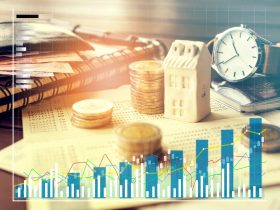The election is over. It’s time to get ready for the election.
Blink and you might have missed the fact that voters, at least a few of them, went to the polls this past Tuesday to cast their ballots. This wasn’t the year of a presidential election, or even a midterm, when control of the House and Senate are at stake. Instead, outside of a few states, the vote was for city council seats, judgeships, and other low-stakes positions and propositions.
There were exceptions—and they were enough to get talking heads pontificating about what those results might mean for next year’s presidential election. It seems voters will turn out to protect the right to get an abortion, or enshrine it in a state’s constitution, as occurred in Ohio. And it also appears that a Democrat can hold the governorship in a red state, as long as that state is Kentucky. Virginia, meanwhile, wasn’t quite ready to hand the keys to the state over to the Republican party, dealing a blow to Gov. Glenn Youngkin and his presidential aspirations, or so the pontificators explain.
Yet all these results are just a sideshow compared to the looming main event in one year’s time. It’s widely expected to be a face-off between current President Joe Biden and former President Donald Trump, two candidates no one seems all that excited about. According to an NBC News survey of 1,000 registered voters conducted in September and cited by Deutsche Bank, respondents were very worried about Biden’s age and Trump’s legal woes. Don’t expect that to change anything, though. “Despite major concerns with candidates, the American electorate is likely to see a rematch of 2020,” writes Deutsche Bank’s Brett Ryan.
According to Goldman Sachs data, the
S&P 500
has returned 7% over the 12 months before a presidential election, compared with 9% for other years. And since 1984, those results have been even worse—just 4%, thanks to recessions that occurred near the 2000, 2008, and 2020 elections, versus 11% for non-presidential-election years. Exclude those recessions, and returns are still two percentage points lower than in off years. Ouch.
We can even pinpoint when the odds are particularly stacked against investors. Raymond James strategist Ed Mills notes that from January to the run-up to the Super Tuesday primaries in March, the S&P 500 averaged a loss of 0.44%, while it averaged a monthly loss of 1.27% in the month heading into Election Day. The good news: The S&P 500 averages a 1.28% monthly gain once the election is over. “[Markets] quickly play catch-up after election year uncertainty is resolved,” Mills writes.
These results have little to do with the candidates. History says to expect a rough year ahead for the stock market—and not because of the candidates likely to be on the ballot or who the polls suggest might win. Ryan cites Deutsche Bank’s own data showing that the “predictive value of polls is near zero” until 300 days ahead of an election.” Right now, it’s all noise.
Nor are the returns a response to anything fundamental. The U.S. economy has grown at a 3.5% clip during presidential election years versus 2.7% in other years since 1984, while S&P 500 earnings per share have grown by 9%, 1.5 percentage points more than in other years. “Election-year equity returns are typically driven entirely by profit growth,” Kostin explains.
So what explains the poor returns? Chalk it up to uncertainty. Kostin notes that the S&P 500’s price/earnings ratio typically declines by 2% during the year before a presidential election, while the 10-year Treasury yield has fallen a median of 0.39 percentage point. The end result is a widening equity risk premium. In other words, investors are demanding more yield over ultrasafe government debt to hold stocks. And they’re right to do so—realized volatility is higher during these years as well, according to Kostin.
We should be used to this by now. Polls will shift, hot takes will proliferate, and markets will move. But this too shall pass, and when it does, the market should do what it always does—head higher.
Write to Ben Levisohn at Ben.Levisohn@barrons.com
Read the full article here













Leave a Reply